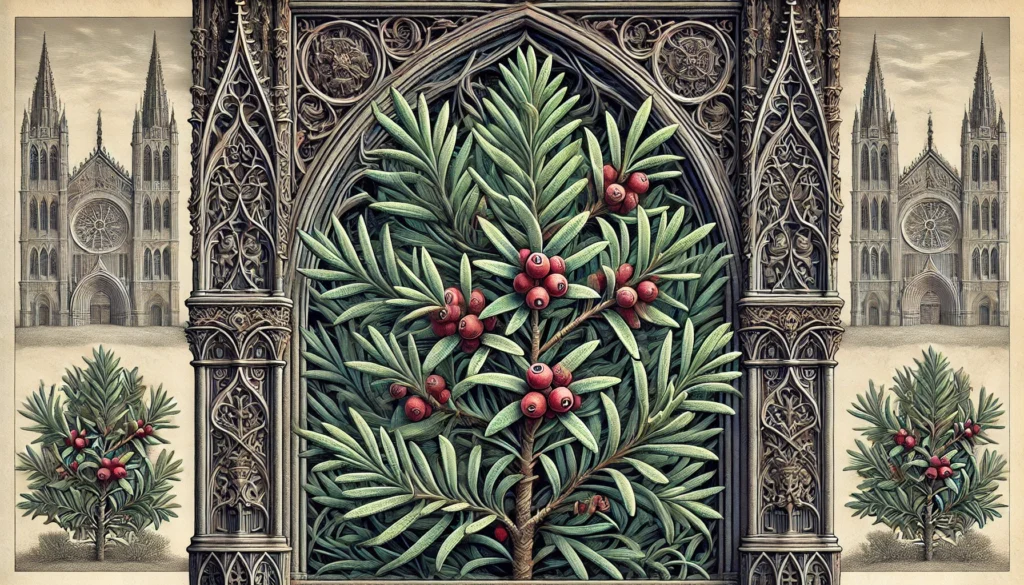

Home » Cat Plants » The Toxic Harm the Yew Plant Can Cause to Cats

The yew plant, a common evergreen shrub or tree, is highly toxic to cats if ingested. All parts of the yew plant, including the needles, bark, and berries, contain taxine alkaloids that can cause severe poisoning in felines.
This ornamental plant is often found in landscaping, gardens, and parks, making it a potential hazard for curious cats.
Ingestion may cause mild gastrointestinal upset, but is generally not life-threatening.
Ingestion can result in mild symptoms like vomiting, diarrhea, or drooling. Rarely fatal but may require veterinary care.
Eating these plants can lead to more pronounced symptoms like abdominal pain, lethargy, or difficulty breathing. Veterinary intervention may be necessary.
Ingesting even small amounts can cause severe symptoms like organ damage, seizures, or cardiac failure without rapid treatment.
All parts of these plants are extremely poisonous to cats and can quickly lead to death, even with immediate veterinary care.
** Please note: Please note that toxicity level can vary based on the amount ingested and the specific cat. It's always best to keep these plants completely inaccessible to cats and seek immediate veterinary care or call the poison hotline if you suspect your cat has ingested any part of a toxic plant.
If your cat has ingested any part of a yew plant, they may experience a range of symptoms due to the toxic taxine alkaloids present in the plant. These symptoms can develop rapidly and may include:
It is crucial to seek immediate veterinary care if you suspect your cat has consumed any part of a yew plant, as the toxicity can be life-threatening.
If you bring your cat to the veterinarian with suspected yew poisoning, they will follow these steps to diagnose and treat the condition:

A: Yes, Yew is highly harmful to cats. The plant contains toxic alkaloids that can cause severe symptoms, including vomiting, difficulty breathing, and even sudden death.
A: Symptoms of Yew poisoning in cats include vomiting, drooling, and muscle tremors. If your cat exhibits any of these symptoms, seek emergency veterinary care immediately.
A: Yew is extremely toxic to pets, particularly cats and dogs. Even small amounts of the plant can be fatal, so it’s important to keep it out of reach of all animals.
A: Cats can sometimes recover from Yew poisoning with rapid and intensive veterinary intervention. However, the prognosis is often poor if treatment is delayed.
A: It is not safe to grow Yew in a garden with cats due to its high toxicity. Consider safer alternatives like lavender or rosemary to protect your pets.
A: If your cat ingests Yew, seek emergency veterinary assistance immediately. Quick action is crucial to prevent potentially life-threatening complications.
Yew plants have a long history of use in various cultures, despite their toxic properties. Some historical uses include:
Despite their historical significance, it is crucial to recognize the severe toxicity of yew plants to cats and other animals and to prevent exposure whenever possible.
Please note: The information shared in this post is for informational purposes only and should not be considered as veterinary medical advice.
🐾 A hilarious or heart-melting cat video
🐾 Our latest paws-on review of a cool cat toy